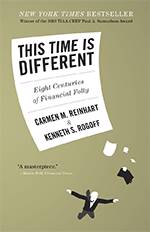OnPoint Subscriber Exclusive

Willem H. Buiter
Says More…
This week, PS talks with Willem H. Buiter, a visiting professor at Columbia University who was formerly Chief Economist at Citigroup.
Project Syndicate: In May, you argued that, when economies face a liquidity trap at the effective lower bound for the nominal policy interest rate, monetized increases in public spending or tax cuts are an appropriate policy response. But once interest rates return to “normal,” governments “will have to adjust their fiscal position and its financing accordingly.” Let’s apply this logic to the United States, which, as you’ve acknowledged, “faces fewer constraints than other countries on the federal government’s ability to borrow and to monetize public debt.” What risks do you see arising from current government stimulus policies, and how – and when – might they be mitigated?
Willem H. Buiter: In the US, unemployment is substantial, capital utilization is low, policy interest rates are near zero, and longer-maturity safe rates are at historic lows. So there is no reason not to provide further fiscal stimulus (tax cuts or increased public spending on goods and services) and to monetize the resulting increase in the federal deficit. Global demand for the US dollar – which remains the world’s only serious reserve currency – is robust enough to prevent a sharp, destabilizing currency depreciation.
Because interest rates of all maturities are at historic lows, financing the increase in the federal deficit by selling debt to the markets, rather than to the Federal Reserve, is an option, but monetization remains the cheaper approach. In the longer term, if interest rates on public debt rise significantly, and the Fed escapes its liquidity trap – two developments that are highly unlikely in the next few years – fiscal and monetary tightening may be required. In such a scenario, a more robust post-COVID-19 private economy is likely to limit the damage such restrictive fiscal and monetary policies do to effective demand and economic activity.
Buiter recommends
We ask all our Say More contributors to tell our readers about a few books that have impressed them recently. Here are Buiter's picks:
-

Deaths of Despair and the Future of Capitalism
by Anne Case and Angus Deaton
In the US, life expectancy is falling, owing to a combination of drug overdoses, alcoholism, and suicides. According to Case and Deaton (a Nobel laureate), these “deaths of despair” are directly linked to labor’s declining bargaining power, a deeply dysfunctional health-care sector, and an educational system that limits access to university degrees – in other words, the failure of capitalism, including an inadequate welfare state. That is the bad news. The good news is that these are human-made disasters, and thus can be corrected. All that is needed is political will.
-

Capital and Ideology
by Thomas Piketty
This massive tome – which I reviewed in depth for PS On Point – has much to offer, even when the reader disagrees with parts of the analysis. Building on his 2014 opus, Capital in the Twenty-First Century, which readers should also not miss, Piketty presents a coherent picture of how growing inequality in capitalist economies can be explained by a combination of technology and social and political structures. Early in 2020, I considered the political transformation necessary to move toward the more egalitarian future Piketty describes highly unlikely. But the political, social, and economic fallout of the COVID-19 crisis may make such a transformation less unlikely. Nonetheless, material movement toward the comprehensive political, social, and economic changes Piketty envisions will be politically possible only after years of economic under-performance.
-

This Time is Different: Eight Centuries of Financial Folly
by Carmen M. Reinhart and Kenneth Rogoff
Published 11 years ago, this should be required (re)reading for all economists, historians, and fiscal and monetary policymakers trying to understand and/or manage the consequences of the debt explosion resulting from the fiscal- and monetary-policy responses to the COVID-19 pandemic. The lessons are relevant not only to emerging and developing economies, but also to many developed economies with precarious fiscal positions.
From the PS Archive
From 2019
Buiter offers some suggestions for mitigating Brexit’s inevitable economic costs. Read more.
From 2020
Buiter thinks the likely persistence of zero and negative interest rates justifies abolishing most banknotes. Read more.
Around the web
In VoxEU, Buiter outlines three flaws in the Fed’s operating practices, and proposes ways forward. Read the article.
In the Financial Times, Buiter shows why paying for the COVID-19 pandemic will inevitably be very painful. Read the commentary.